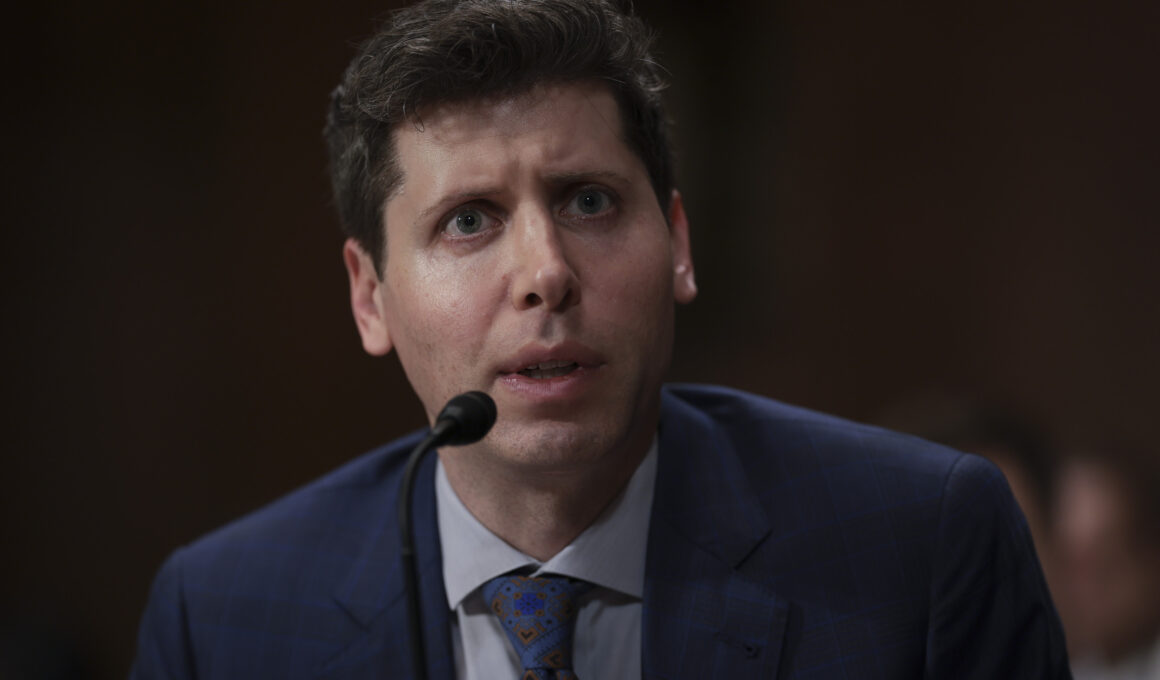Sam Altman, the CEO of OpenAI, published a rare public call for the U.S. to lead on artificial intelligence development — arguing that if Washington doesn’t, Beijing will.
“We face a strategic choice about what kind of world we are going to live in: Will it be one in which the United States and allied nations advance a global AI that spreads the technology’s benefits and opens access to it, or an authoritarian one, in which nations or movements that don’t share our values use AI to cement and expand their power?” Altman wrote in an op-ed published Thursday by the Washington Post.
Altman, who is best known for his work in pushing artificial intelligence (AI) into the mainstream as the face of ChatGPT, said the U.S. is currently ahead in AI development but the “leadership is far from guaranteed.”
With China telegraphing that it aims to become the global leader in AI by 2030, Altman urged U.S. politicians to take a more comprehensive and strategy approach to building out the governance, infrastructure and security to create a “democratic vision for AI.”
“Authoritarian governments the world over are willing to spend enormous amounts of money to catch up and ultimately overtake us,” Altman wrote. “These authoritarian regimes and movements will keep a close hold on the technology‘s scientific, health, educational and other societal benefits to cement their own power.”
Altman suggested that to ensure the future of AI is “built to benefit the most people possible,” a U.S.-led global coalition is needed.
The OpenAI CEO recently cofounded a new AI Ethics Council, along with Operation HOPE CEO John Hope Bryant, as a sort of non-binding AI governance model also intended ensure that traditionally underrepresented communities have a voice in the technological revolution.

“There are bad people in the world who will use artificial intelligence to do bad things,” Bryant told Newsweek in an interview. “We need to get to scale before they do.”
Altman’s oped on Thursday, however, suggested there is need for even more “robust security measures to ensure that our coalition maintains the lead in current and future models and enables our private sector to innovate.” This is to include cyber defense and data-center security, he suggested.
He called for leaders in Washington to provide more clarity into their intentions “to implement export controls and foreign investment rules for the global build out of AI systems.”
Altman wants the public to “think creatively” about new models in “developing and deploying AI.” He previously suggested creating a multinational body like the International Atomic Energy Agency to oversee the ground-breaking technology and mitigate any existential risks.
“The future continues to come at us fast,” Altman told Axios in a phone interview Wednesday. “I’m grateful that some stuff is happening [at the White House and on Capitol Hill]. But I don’t think we’re seeing the level of seriousness that this warrants.”

Last year, Altman testified on Capitol Hill and agreed with a Senate panel that regulating AI is necessary and requires safeguards.
“We think that regulatory intervention by governments will be critical to mitigate the risks of increasingly powerful models,” Altman said in his opening remarks.
Altman told Axios that no matter who wins the election, “the next president is going to be required to make some very substantial decisions about the rollout of AI into the world.”
To ensure this is possible, Altman also called for additional “broadband infrastructure” to make sure the country is the “center of the digital revolution and to build its current lead in artificial intelligence.”
This will also create new jobs, he said.
“We are witnessing the birth and evolution of a technology I believe to be as momentous as electricity or the internet,” Altman wrote. “AI can be the foundation of a new industrial base it would be wise for our country to embrace.”
Do you have a story we should be covering? Do you have any questions about Sam Altman and OpenAI? Contact LiveNews@newsweek.com.
Uncommon Knowledge
Newsweek is committed to challenging conventional wisdom and finding connections in the search for common ground.
Newsweek is committed to challenging conventional wisdom and finding connections in the search for common ground.






